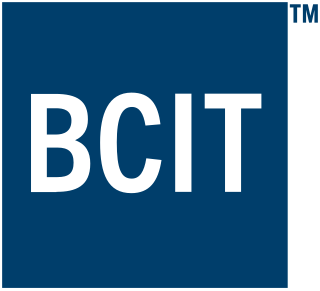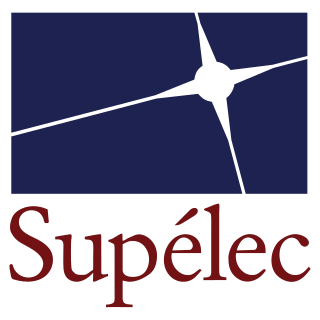
A college is an educational institution or a constituent part of one. A college may be a degree-awarding tertiary educational institution, a part of a collegiate or federal university, an institution offering vocational education, a further education institution, or a secondary school.

Higher education is tertiary education leading to the award of an academic degree. Higher education, which makes up a component of post-secondary, third-level, or tertiary education, is an optional final stage of formal learning that occurs after completion of secondary education. It represents levels 5, 6, 7, and 8 of the 2011 version of the International Standard Classification of Education structure. Tertiary education at a nondegree level is sometimes referred to as further education or continuing education as distinct from higher education.

Optometry is a specialized health care profession that involves examining the eyes and related structures for defects or abnormalities. Optometrists are health care professionals who typically provide comprehensive primary eye care.

Education in Canada is for the most part provided publicly, and is funded and overseen by provincial, territorial and local governments. Education is within provincial jurisdiction and the curriculum is overseen by the province. Education in Canada is generally divided into primary education, followed by secondary education and post-secondary. Within the provinces under the ministry of education, there are district school boards administering the educational programs.

The British Columbia Institute of Technology, is a public polytechnic institute in Burnaby, British Columbia. The technical institute has five campuses located in the Metro Vancouver region, with its main campus in Burnaby, British Columbia, Canada. There is also the Aerospace Technology Campus in Richmond, the Marine Campus in the City of North Vancouver, Downtown campus in Vancouver, and Annacis Island Campus in Delta. It is provincially chartered through legislation in the College and Institute Act. The school operates as a vocational and technical school, offering apprenticeships for the skilled trades and diplomas and degrees in vocational education for skilled technicians and workers in professions such as engineering, accountancy, business administration, broadcast/media communications, digital arts, nursing, computing, medicine, architecture, and law.

A Christian school is a school run on Christian principles or by a Christian organization.
Continuing education is an all-encompassing term within a broad list of post-secondary learning activities and programs. The term is used mainly in the United States and Canada.
Catholic schools are pre-primary, primary and secondary educational institutions administered in association with the Catholic Church. As of 2011, the Catholic Church operates the world's largest religious, non-governmental school system. In 2016, the church supported 43,800 secondary schools and 95,200 primary schools. The schools include religious education alongside secular subjects in their curriculum.

The University of the Fraser Valley (UFV), formerly known as University College of the Fraser Valley and Fraser Valley College, is a Canadian public university with campuses in Abbotsford, Chilliwack, Mission and Hope, British Columbia. Founded in 1974 as Fraser Valley College, it was a response to the need for expanded vocational training in the communities of the Fraser Valley. In 1988, it became a university college, with degree-granting status. As the University College of the Fraser Valley, it grew rapidly, becoming one of the largest university colleges in Canada.
The Master of Library and Information Science (MLIS), also referred to as the Master of Library and Information Studies, is the master's degree that is required for most professional librarian positions in the United States. The MLIS is a relatively recent degree; an older and still common degree designation for librarians to acquire is the Master of Library Science (MLS), or Master of Science in Library Science (MSLS) degree. According to the American Library Association (ALA), "The master’s degree in library and information studies is frequently referred to as the MLS; however, ALA-accredited degrees have various names such as Master of Information Studies, Master of Arts, Master of Librarianship, Master of Library and Information Studies, or Master of Science. The degree name is determined by the program. The [ALA] Committee for Accreditation evaluates programs based on their adherence to the Standards for Accreditation of Master's Programs in Library and Information Studies, not based on the name of the degree."
Education in Alberta is provided mainly through funding from the provincial government. The earliest form of formal education in Alberta is usually preschool which is not mandatory and is then followed by the partially-mandatory kindergarten to Grade 12. This is managed by Alberta Education which has divided the province into 379 school authorities. Higher education in the province is managed by Alberta Advanced Education.

Lakeland College is a post-secondary college in Alberta, Canada. It is publicly funded, and maintains two campuses in Vermilion and Lloydminster. Lakeland serves over 7,000 students through the academic year with 2,223 studying full- and part-time.

Arellano University (AU) is a private, coeducational, nonsectarian university located in Manila, the Philippines. It was founded in 1938 as a law school by Florentino Cayco Sr., the first Filipino Undersecretary of Public Instruction. The university was named after Cayetano Arellano, the first Chief Justice of the Supreme Court of the Philippines. It operates seven campuses located throughout Metro Manila and the main campus is located along Legarda Street, Sampaloc, Manila. The Arellano University School of Law is autonomous and managed by the Arellano Law Foundation. Its athletic team, the Arellano University Chiefs, is a member of the National Collegiate Athletic Association since 2009.

Ambrose University is a private Christian liberal arts university located in Calgary, Alberta, Canada.

École supérieure d'électricité, commonly known as Supélec, was a French graduate school of engineering. It was one of the most prestigious grande écoles in France in the field of electrical engineering, energy and information sciences. In 2015, Supélec merged with École Centrale Paris and became CentraleSupélec, a constituent member of Université Paris-Saclay.
Rajagiri is a part of the Carmelites of Mary Immaculate (CMI), an indigenous Syrian Catholic religious congregation founded in 1831. It is located in Rajagiri Valley, Kakkanad, Kochi. It was acquired after Indian independence and developed by the Sacred Heart province.

Higher education in Ontario includes postsecondary education and skills training regulated by the Ministry of Colleges and Universities and provided by universities, colleges of applied arts and technology, and private career colleges. The current minister is Jill Dunlop who was appointed in June 2021. The ministry administers laws covering 22 public universities, 24 public colleges, 17 privately funded religious universities, and over 500 private career colleges. 18 of the top 50 research universities in Canada are in Ontario.
Medicine Hat School District No. 76 is the public school board in Medicine Hat, Alberta, Canada.
Kampala International University (KIU) is a private, not-for-profit institution based in Uganda. It was established in 2001 and assumed chartered status in 2009.











